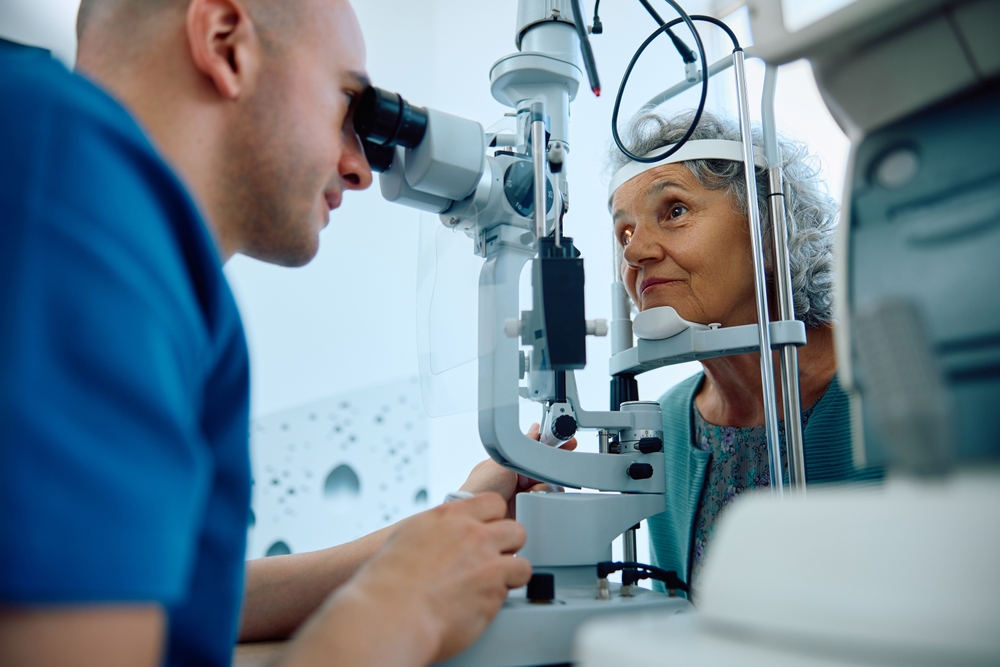
Diabetes can significantly impact your vision, making routine diabetic eye exams a critical part of maintaining eye health. At Vicle Eye Care, we prioritize helping patients with diabetes safeguard their vision through comprehensive exams tailored to detect and manage diabetes-related eye conditions.
Why Are Diabetic Eye Exams Important?
Diabetes increases your risk for several eye conditions, including:
Diabetic Retinopathy: Damage to the blood vessels in the retina, potentially leading to vision loss.
Diabetic Macular Edema: Swelling in the retina caused by fluid leakage.
Cataracts: A clouding of the eye’s lens, occurring earlier and more frequently in people with diabetes.
Glaucoma: Increased eye pressure that can damage the optic nerve.
Early detection of these conditions is crucial for preserving your vision. Regular diabetic eye exams can catch issues before symptoms appear, enabling timely treatment and better outcomes.
Preparing for Your Diabetic Eye Exam
Before your appointment, there are a few steps you can take to ensure a smooth visit. Be sure to bring your medical history, including details about your diabetes diagnosis, medications, and any symptoms you’ve experienced, such as blurry vision or floaters. If you wear glasses or contact lenses, bring them along so your eye doctor can assess any changes in your vision. Additionally, plan for pupil dilation during the exam, as this may temporarily affect your ability to drive or focus. Consider arranging for someone to drive you home or use public transportation if needed.
What Happens During a Diabetic Eye Exam?
A diabetic eye exam involves a series of tests to evaluate the health of your eyes and detect signs of diabetes-related complications:
Discussion of Symptoms and History: Your eye doctor will ask about your medical history and any visual symptoms you may be experiencing.
Visual Acuity Test: This test measures the sharpness of your vision to determine if diabetes has affected your eyesight.
Eye Dilation: Eye drops will be used to dilate your pupils, allowing your doctor to examine the retina and optic nerve more thoroughly. While dilation may cause temporary light sensitivity, it provides a detailed view of the back of your eye.
Retinal Imaging or Fundoscopy: Using advanced imaging technology, your doctor will capture high-resolution images of your retina to look for early signs of diabetic retinopathy or macular edema.
Tonometry: This test measures the pressure inside your eye to check for glaucoma, a common concern for people with diabetes.
Comprehensive Retinal Exam: Your eye doctor will use specialized tools to assess the health of the retina, optic nerve, and blood vessels, looking for signs of damage or swelling.
What Happens After the Exam?
Once your eye exam is complete, your doctor will discuss the results and outline the next steps. If signs of a diabetes-related eye condition are detected, your treatment plan may include:
Monitoring: Regular follow-up appointments to track any changes.
Medications: Eye drops or other treatments to manage specific conditions.
Surgical Interventions: In advanced cases, procedures such as laser therapy or vitrectomy may be recommended.
Your doctor will also provide guidance on maintaining your overall eye health, including managing your blood sugar, blood pressure, and cholesterol levels.
When Should You Schedule Your Next Exam?
For most people with diabetes, annual eye exams are recommended. However, your doctor may suggest more frequent visits if you’re at a higher risk for complications or are already experiencing vision issues.
Protect Your Vision with Vicle Eye Care Today
Regular diabetic eye exams are a vital step in protecting your vision and overall eye health. By understanding what to expect during the exam and taking proactive measures, you can ensure a smooth experience and early detection of any potential issues. We are dedicated to providing comprehensive, personalized care to help you manage your eye health effectively.
Contact Vicle Eye Care to schedule your diabetic eye exam, and take an important step toward preserving your sight for years to come. Visit our office in Dania Beach, Florida, or call (305) 935-4606 to book an appointment today.




